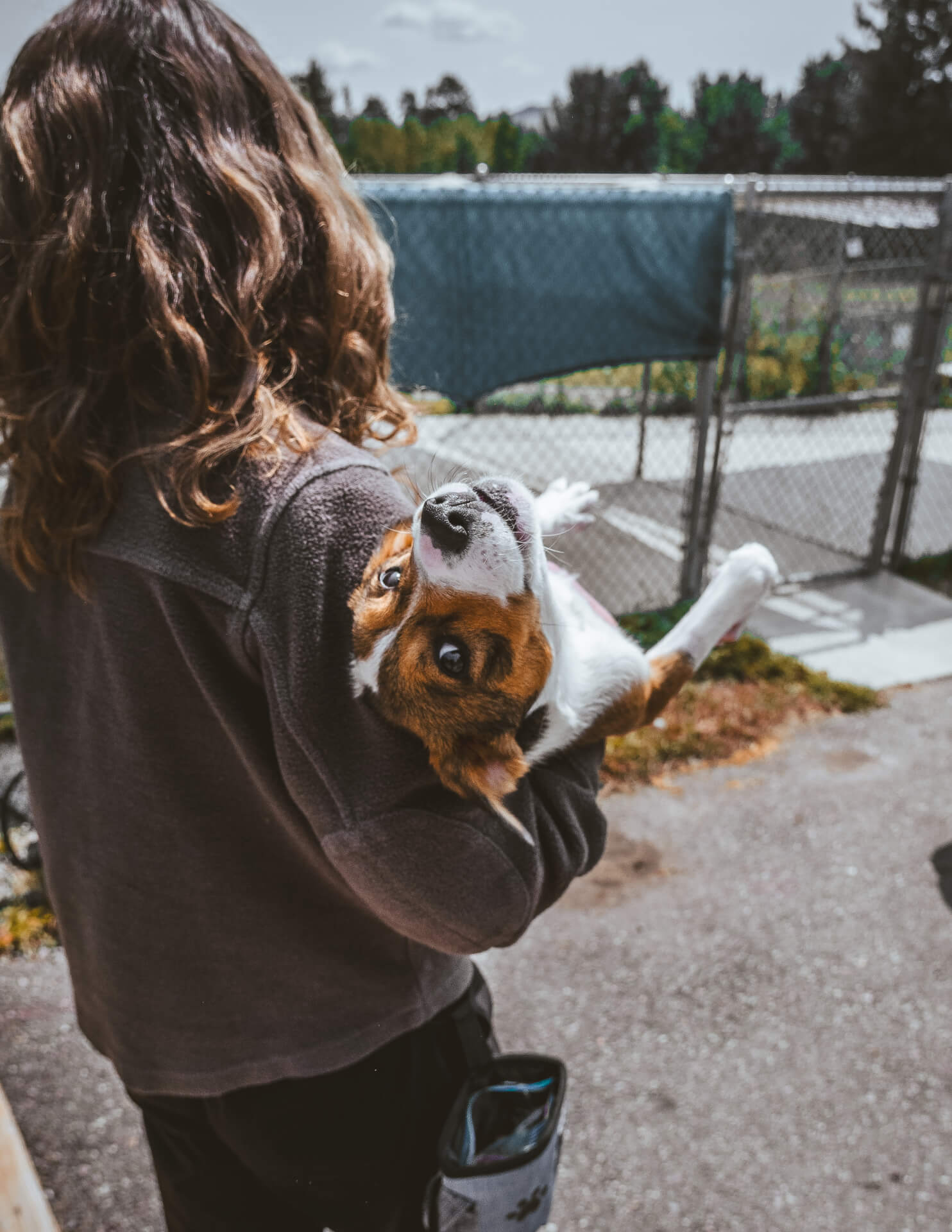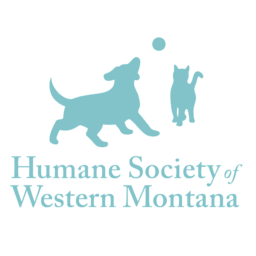
Puppy Growth & Development
Your new puppy has a lot of growing up to do. It is important to continue to introduce your puppy to new people, places, and things throughout the different stages of their development. Puppies grow up FAST! The earlier you start training and socialization, the easier it will be. Teach your puppy what you want them to do from their very first day in your home and be sure to keep in mind her full adult size when determining what she is, and is not, allowed to do.
The Early Days (0 – 6 weeks)
Puppies that are separated from their siblings too early often fail to develop appropriate social skills. Puppies teach one another how to send and receive social cues, how to inhibit their bite, and how to play. Pups are typically weaned at six to seven weeks but they should remain with their family (or other “role model” dogs) for at least 8 weeks in order to learn these important social skills. Once separated from their siblings, puppies need to continue to have play time with other puppies and adult dogs to refine their social skills.
- 0 – 2 Weeks: Neonatal Period – Puppies can sense taste and touch at birth but are blind and deaf. They are most influenced by their mother at this early age.
- 2 – 4 Weeks: Transitional Period – Puppies open their eyes, baby teeth start to come in and the senses of smell and hearing begin to develop. They begin to stand, wag, bark and walk a little. At this stage puppies are most influenced by their mother and littermates. By the fourth or fifth week a puppy’s eyesight is well-developed.
- 4 – 6 Weeks: Play Discovery Period – Puppies become playful with their dog and human companions and begin to explore their environment more.
Socialization Period (3 -12 weeks)
Your job as a new puppy parent is to socialize and train your puppy so that she grows up to be happy and well-adjusted. Experts say a puppy should see (and have positive experiences seeing) 100 new people by the time she is three months old! Use food rewards and praise to help your puppy learn to love new things; socialization does not mean your puppy needs to be pet by every person or play with every dog! However, she needs to play with other socially appropriate dogs of all ages and sizes to continue to learn social skills and bite inhibition as well as to further improve her coordination. Join a Puppy Kindergarten class, like the one offered at the Humane Society of Western Montana.
- 7 – 9 Weeks: Coordination Period – At this age your puppy’s senses are fully developed. She is becoming more aware of her surroundings, companions and relationships. Your puppy is refining her physical skills and coordination and can now be housetrained.
- 8 – 10 Weeks: First Fear Period – Positive training is especially important during this time as your puppy is now capable of experiencing fear and is very sensitive to negative experiences. She may act fearful of an object or person she has already met. Your puppy needs to build positive associations with things she may be afraid of. Use treats, praise and patience to help her overcome her fears. Do not force your puppy to interact with people or things that scare her as it can have long-lasting effects.
Socialization/Status Period (3 – 6 months)
During this stage in her life, your puppy is most focused on her playmates, whatever species they may be. Social interaction usually takes priority over solo exploration.
- 4-6 Months: Second Fear Period – At this age your puppy may experience another fear stage. Her world view is slowly expanding, so she is noticing new things about her environment. Don’t be surprised if your puppy is suddenly nervous about an item she has walked by many times before. Use reward-based training and patience to help her to have positive experiences to overcome her fears. Always allow your puppy to approach new things on her own terms — do not force your puppy to interact with people or things that scare her – and praise her curiosity in new situations.
- 4 – 6 Months: Teething Period – Teething, and the associated chewing, begins. Be sure to provide your puppy with appropriate toys, particularly food toys and edible chews. Practice good management by confining your puppy to an ex-pen, crate, or tether so they only have access to the things you’d like them to learn to chew on. See the Humane Society of Western Montana’s handout on selecting dog toys for some suggestions.
Canine Adolescence (6 – 18 months depending on breed type)
Puppies experience a teenage phase much like humans. During this phase they focus on their peers, relationships and their role in life, and may seem less responsive to skills you’ve spent many months teaching them. A fear period may arise once more during this adolescent phase; remember to always handle your puppy’s fear with patience and reward-based training. Adolescent dogs seem to never tire! Vigorous daily exercise and out-of-territory walks are a must. You may notice your puppy going through a second chewing phase. This is her way of exploring the world around her. It is also important for her to chew to develop jaw strength and bone structure. Continue to provide appropriate toys and chews, keeping in mind her increasing size and bite strength. Keeping up with training is important even when it appears that your dog has a shorter attention span or seems to forget behaviors you have already trained. Continue training with short, positive, daily sessions and her short attention span and forgetfulness will pass with consistency. If not yet spayed or neutered, this is when a puppy starts to experience sexual behavior. Spaying or neutering your puppy will lengthen life expectancy and can prevent certain behavioral problems like marking and roaming.
